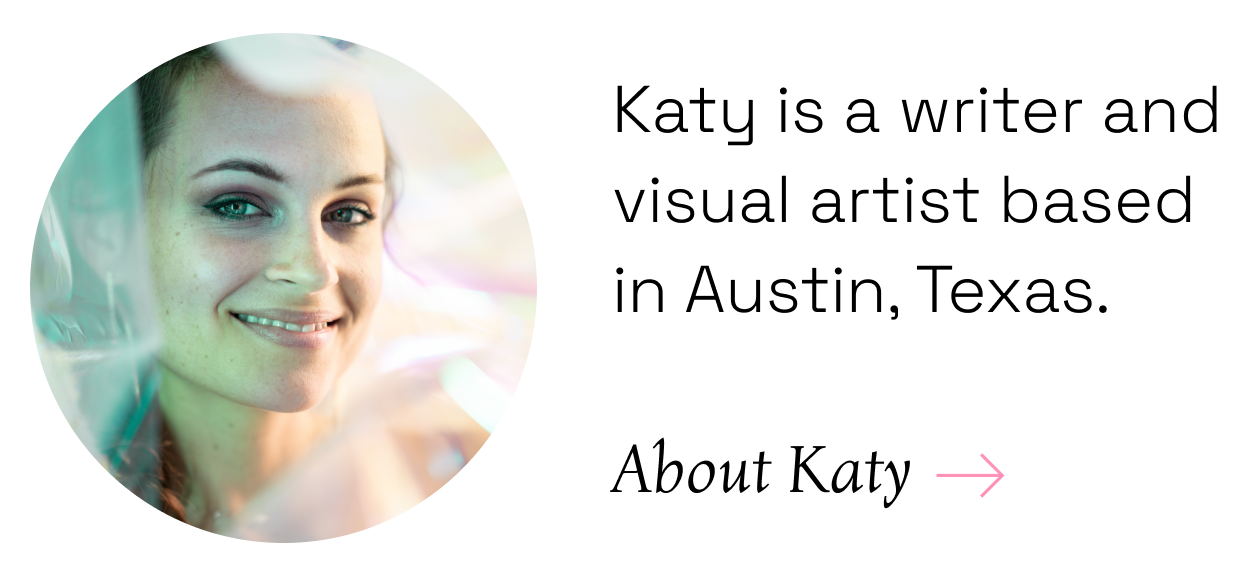You’re standing in the shower, staring absently at the droplets on the glass. You stopped lathering your hair 2 minutes ago. While you ruminate, the water runs and runs as forgotten white noise.
“I should have said this, not that. Then they’d think this. Damn.”
Over and over the conversations play in your mind, both real and fictional. The longer they play, the less like reality they look, and the more self-criticism colors the memories.
Then you lay in bed and stare at the ceiling, running a whole new situation in your mind, saying this clever thing or resolving an issue in this generous way.
If only you’d had the right words… then.
But it gets worse
We sit on ideas or get stuck in a goal, while uncanny opportunities miss the magnet of our sharing and pass right on by.
We wait to say something for weeks until we have it just right in our mind, only to miss the moment and find the connection has gone stale.
We feel off-put in an interaction, and only realize later that we could have mentioned feeling uncomfortable or unheard right then.
This is all. So. Normal.
We’re missing life in a breakdown of communication.
If we’re not wasting tons of time analyzing what to say, then there’s a huge gulf of richer relationships and full-ass self-expression that lies in our blind spot.
Of course, it isn’t just verbal communication. Most of us have an area of life (or a certain relationship) where we don’t fully act, dress, present, create, or share ourselves in a true way. We keep our own company in part because it takes so much mental effort to even know how to present how we’re thinking and feeling, or what is in us to create.
It’s not about everyone becoming RuPaul or Dolly Parton. You don’t have to suddenly be a colorful, life-of-the-party extrovert ready for your Broadway debut.
You can be an observer. An introvert who only says a few things. But whenever you do speak, people listen. They see who you are and respect your words, whether it’s 10 or 30,000.
In fact— you can learn to have any conversation, with anyone, at any time, and still feel good at the end.
From difficult conversations with a challenging person to getting to know someone new, there is a way to navigate and express your thoughts that will land with other people.
You can feel understood every time.
You can be the type of communicator that draws people to help you think out loud until they get what you mean in its entirety.
You can feel such ease and confidence with communication that challenges become an opportunity for intimacy and trust, and barriers begin to look more like new friends.
Communication is a muscle, like anything else
When you have the tools to communicate effectively and you understand how it can work, it still takes a lot of reps of practice to change old habits. And yet, as you go along shifting your communication to move you and other people, you’ll slowly be able to change any area of your life just through your words.
And don’t worry, it’s not about being positive all the time.
The Iguana On Your Lips
When was the last time you said something that shocked you?
The threads unravel, blasting condescension or resistance. You wish you could reel them back in even as the sounds form.
You’ve heard of the ‘reptilian’ part of the brain, the old subconscious part that wants nothing more than survival and control. It forms the default mode of communication, the protective, resisting kind of approach we revert to when we feel the least threatened.
I like iguanas because they’re colorful, but you can think of this reptilian default however you want.

Essentially, the whole world of color and beauty is available to us to reflect and create in our communication, and yet we still default to ‘iguana.’
Iguana communication comes out of scarcity, survival, and fear.
Whether we realize it or not, there are subtle ways we try to control our environment in the way we speak. This is the built-in survival tactic, where we learn to use words to gain resources, stature, and attention as a means of control.
It looks like:
- Controlling situations and people
- Defensiveness
- Convincing
- Complaining
- Avoiding
- Withholding
- Justification
- Blaming
- Resisting
- …the list goes on.
Even if we’re very mature, we can still have habits in communication that subtly destroy or disconnect rather than build connection and affinity.
There’s a better way to say what you mean, every time.
This form of communication comes from a special listening skill that I’ll talk more about later. The gist of it is that when your communication comes from a place of security and abundance, you can keep other people’s attention and build affinity with them easily.
People feel attentive toward you when you communicate this way, even if they don’t like you.
This kind of communication sounds:
- Generous, or giving the benefit of the doubt
- Responsible
- Accepting
- Sharing
- Inviting
- Truthful
- Affirming
- Honoring
- Acknowledging
Let’s call this kind of communication vivid.*
One New York Times journalist once tried to shame Maharishi.
One of my clients was the student of Maharishi Mahesh Yogi, the transcendental meditation teacher who taught the Beatles. He has a story of interacting with a pompous journalist who came to India to humiliate the Maharishi. She was out for blood in her Louis Vuittons.
The story goes that she marched into Maharishi’s office with a face hard as stone. They closed the door behind her, hoping they weren’t closing him into a wasps’ nest.
Within 15 minutes, the sounds of laughter bubbled out of the office.
First, it was Maharishi’s laughter. Then hers as well. Louder and louder, they giggled together until the door cracked open.
Walking out of his office, she informed everyone: “’I’ve just been appointed the head of Maharishi’s new initiative to bring meditation into the schools in my country and I am really fired up about it.’”
Of course, no one was surprised.
The journalist was run by resistance and control before she met Maharishi.
He received her with generosity and invitation anyway, unable to be pushed to defensiveness.
He probably spoke to the best qualities he saw in her: ambition, confidence, and immovability.
And he invited her into a story where she could be the hero, moving her from an enemy to an ally in 15 minutes flat. Laughing, he quoted his own teacher: “Even rocks melt.”
You can hear Thom Knoles’ full account of the story in his podcast here: My Maharishi, Humor Incarnate.
I know you’re probably not a meditation guru.
You don’t have to be a guru to stop the iguana from running the show and start creating your world with communication instead.
It may be a long time before your words and presence can make rocks melt, but you’d be surprised how many ‘hard things’ and ‘hard people’ in life give way when we speak from a place of seeing the best in others instead of resisting them.
I know because I did it.
I remember wondering how other kids just talked to each other.
From about 10 years old on until 22, I was convinced I couldn’t communicate or connect with people. I was anxious and inhibited, playing the perfect big sister and making no mistakes, ever. The worst of it was in middle school, when I finally asked my dad for a book.
He was a professor, so I knew I’d get books anyway. I asked for a book on making friends.
He gave me How to Win Friends and Influence People.
I had memories of getting in trouble for talking in kindergarten, and I remembered being everyone’s friend in third grade. I remembered filling up a room even being very small. When I was 10, some difficult family things happened that left me flatlined. My tactic for self-preservation was to take up as little space as possible, which turned out exactly how you’d think it would: I was quiet, anxious, inhibited, stuck in my head, disassociated, and profoundly lonely.
By early high school I was fed up. I remember meeting an older girl who could make the flowers grow with her boundless sunshine, someone who bewildered me with her magnetism. She was living many of ideas I’d read about in my stack of books, and I saw that I didn’t need to be older, have a car, or make a fool of myself to thaw my icy exterior.
I vowed to overcome fear and separateness and inhibition, and discover how people could shape the world around them with their words and presence.
Through a decade of testing, study, mentors, and sheer will, I discovered the following with certainty:
- Congruence: The inner work matters- but it won’t change your life without the communication to carry it into the world.
- Creation: Communication can make life incredibly lucky. It can redesign your life without you doing nearly as much as you’d think you need to for change to occur.
- Compassion: You have to like other people, and you have to like yourself. Without that piece, the best communication tactics are still selfish and manipulative. And they don’t really work.
- Clearing: The hardest thing is to resolve any junk in your closest relationships (starting with parents). And, it makes the biggest difference to the quality of your life.
- Characters: You can train your echo chamber with your communication, and your echo chamber will largely determine your ceiling.
The scarcity/creation paradigm for communication and the principles above are a main topics of Vivid Candor. You’ll see all the themes to do with putting your real self out in the world, creating mind-boggling good fortune, and building the power to navigate any interpersonal situation with both people feeling good on the other side.
• • •
*There will probably be art, small conversations, little myths and fables with morals in them, and other curiosities too, because life is not serious, and communication works best with a curious outlook anyway.
Welcome to Vivid Candor.


